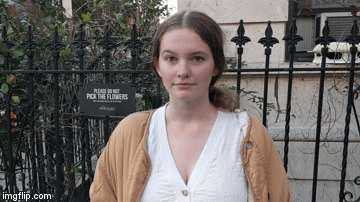There is more to life than likes
November 18, 2019
Instagram users are speaking out against the app’s new concept to ‘hide likes.’ But taking into account the mental health effects of social media, this is a step in the right direction.
Starting next week, Instagram will begin ‘hiding likes’ on some posts in the US. This will be done in an attempt to take away the pressure of posting, and stop users from competing for likes and constantly comparing the popularity of their posts to others.
But what exactly does ‘hiding likes’ constitute? According to Instagram, users will still be able to see how many likes they are getting, except their followers will not.
Instagram’s CEO, Adam Mosseri, said the change will refocus the attention and objective of the app onto building connections within the app. He acknowledged the anxiety coinciding with how many likes a user receives, and many mental health specialists agree.
A study in the Journal of Social and Clinical Psychology showed that people who limited their time on Instagram to 30 minutes a day for a three-week period were less depressed and felt less lonely. Clearly, the period of time spent on social media has massive impacts on mental health.
Some may believe that cyberbullying on Instagram is the major cause of increased depression or anxiety. Yet the root of this issue is largely social comparison.
A major component of social comparison is through photos that are posted, causing users to compare their own looks or appearance to someone else. However, likes are also an issue when it comes to unhealthy comparisons.
Despite the positive intent Instagram has, users are concerned about this change. After all, many growing influencers or Instagram models depend on their large number of likes to bring in sponsorships and brand deals. Without a reflection of their popularity to other users with a clear number of likes, influencers who depend on their social media presence to make a living may feel invalidated.
Of greater importance, more substantial than validation is mental health. As a teenager, I am no stranger to the dangers of social media. Like many, I have looked at my number of likes in comparison to my peers and allowed for my Instagram to negatively shape the view I have of myself. Because of some of my own experiences on social media, I support Instagram’s decision to hide likes.
I understand that not everyone is impacted by likes; some users can scroll through their feed and see posts receiving thousands to millions of likes, and still feel confident with their own account. But even with all these users who have healthy mindsets while using Instagram, many other users, especially teenagers, have issues with self-esteem and their wellbeing because of social media.
Unlike other negative influences in life, social media is not easy to cut out. People who don’t make themselves present online may feel excluded, or out of touch with their friends or peers.
A 2018 Common Sense Media survey revealed that out of roughly 1,000 teenagers who were asked about how they prefer to communicate, less than one-third preferred communicating with their friends face-to-face. About 61 percent preferred texting, video chatting, or social media as a means to communicate. But as social media continues to grow and dominate, even texting to younger generations is becoming almost passé. Like other teens, if I am connected to someone on social media, I will always choose to communicate with them on that app.
For me, it feels like an internal battle choosing whether to be happy or be connected.
If Instagram follows through with its plan to remove likes from our view, users like me who experience this struggle may not have to make this choice. Using the app could begin feeling less toxic and upsetting for insecure users, and Instagram would be a healthier application in general.
In consideration of the minority on Instagram with thousands to millions of followers, perhaps there is a compromise we could all live with. If users could choose if they want their likes on display, the users who want their likes shown and users who do not would both have their way. For social media influencers, Instagram likes are the fuel that helps them profit and allows them to grow. But for insecure users, likes are simply a way to reduce their self-worth to a meaningless numerical value.




Yethmie Goonatilleke • Nov 26, 2019 at 10:39 am
Nice article!